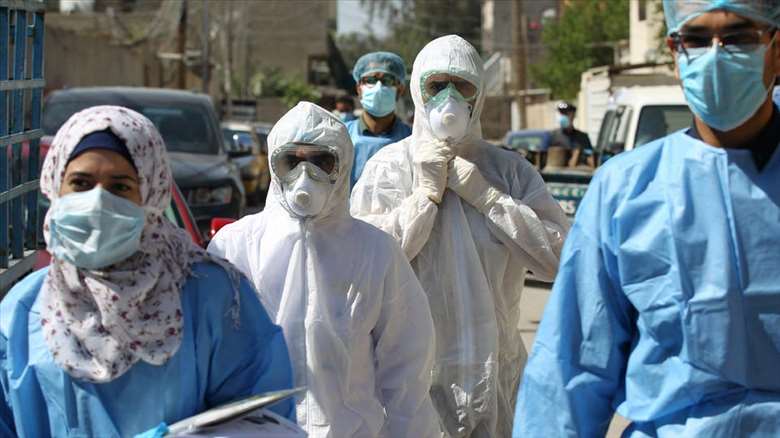COVID-19: Iraq reports over 4,200 cases, more than 70 fatalities

ERBIL (Kurdistan 24) – The Iraqi Health and Environment Ministry announced over 4,200 cases of the coronavirus in the country along with over 70 fatalities in the past 24 hours, amid growing concern about the health situation in the country.
The Ministry in a statement announced that the figures reflected the results of more than 24,000 coronavirus tests conducted over the past day, making for a total of 1,393,488 tests that have been administered since the pandemic first appeared in Iraq in February.
To date, 197,085 people in Iraq have contracted the disease, with 6,283 having died and 50,356 still being treated in clinics and hospitals.
WHO Warns on Iraq’s Coronavirus
The World Health Organization (WHO) in Iraq warned of a "major" health crisis in light of the spiking figures of COVID19 cases. However, it added that Iraqis can still defeat the epidemic through a serious commitment to following preventive measures, such as wearing face masks, social distancing, and avoiding mass gatherings.
Read More: COVID-19: Iraq confirms over 4,000 new cases; WHO warns of 'major' crisis
“The situation in the past months has deteriorated due to many factors, including the easing of restrictions imposed by the Iraqi authorities and the failure to adhere to the preventive measures or implement them by force,” a WHO statement explained.
Coronavirus is Airborne: Implications
Government authorities and other experts have repeatedly warned of the necessity to adhere to public health measures, particularly wearing a mask and social distancing.
Regarding a mask, it is crucial to cover the nose, as well as the mouth, because the human nose contains receptors that are particularly sensitive to coronavirus.
In addition, weather may be a factor. According to a new study published in the journal, Physics of Fluids, humidity facilitates the spread of the virus.
After respiratory droplets, potentially infected with coronavirus, are expelled, like when a person coughs, those droplets can live up to 23 times longer than when the air is very humid, the journal explained.
Because humidity inhibits evaporation, it can extend the airborne life of a 50-micron droplet considerably. The study found that a droplet of 50-microns could evaporate within 1.7 seconds in dry air, but took significantly longer to evaporate in conditions of high humidity.
The study also stressed that social distancing is a crucial factor in helping to stop the spread of the virus.
The highly-contagious disease has, so far, infected over 22.7 million people worldwide and killed over 795,000 according to data compiled by Johns Hopkins University.
Difficulties in Getting People to Adhere to Public Health Guidelines
Nonetheless, governments around the world struggle to impress on their citizens the need to adhere to the public health guidelines. In too many cases, this situation reflects a careless population, bent on enjoying a good time—despite the risks posed by the global pandemic.
European countries have recently experienced an upsurge in infections, and authorities believe tourism has played a significant role.
“Countries that had gotten their outbreaks under control are partly blaming travel for an uptick in cases,” The Washington Post reported on Friday. In Italy, “30 percent of its new cases come from people who were infected abroad; Germany puts its figure at nearly 40 percent,” the Post continued. “In a reference to the risk of returning holidaymakers, Austrian Chancellor Sebastian Kurz said that ‘the virus is coming to Austria by car.’”
In the US, the big problem has become universities. As colleges re-open for the fall semester, they are facing a surge in coronavirus cases, as students ignore public health guidelines. On Thursday, Syracuse University, in upstate New York, took disciplinary action for a large gathering on university grounds.
Denouncing “the incredibly reckless behavior,” school authorities suspended 23 students, while they vowed to continue their investigation and take action against any others whom they are able to identify.
Editing by Laurie Mylroie
